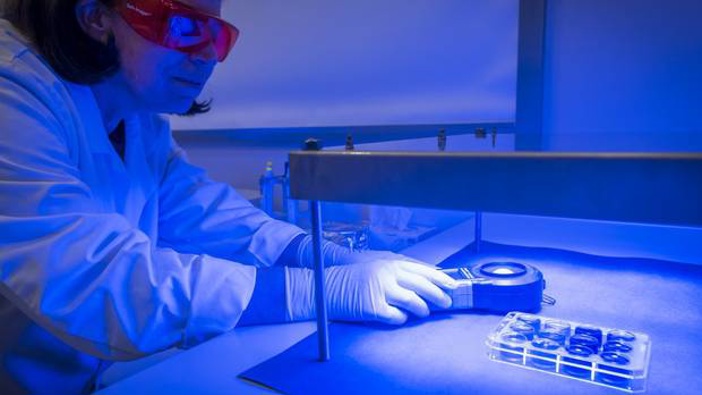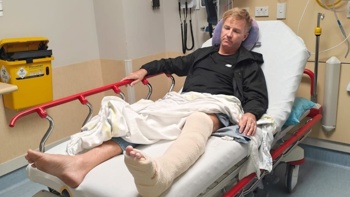Follow
the podcast on

Research to find a new method to detect Covid-19 infection before the onset of symptoms and the development of a new light sterilisation method to kill the virus on surfaces and in the air are being led by AgResearch.
Funded by the Government, the research is part of New Zealand's response to the Covid-19 pandemic.
The first research aims to identify Covid-19 cases within hours of infection. The project will focus on finding a molecular pattern that signals a human body's response to the virus.
"The current testing methods for Covid-19 are detecting the viral RNA, but the virus needs to grow for a few days until its RNA can be found in the samples taken for the test," said AgResearch principal scientist Dr Axel Heiser.
/cloudfront-ap-southeast-2.images.arcpublishing.com/nzme/JVTVEXJ7AFGLLBLTZHFLV66MHE.jpg)
"We want to measure what we call microRNA molecules (miRNAs). The body's cells make thousands of different miRNAs to control their response to diseases."
Scientists at the crown research institute will be joined by other experts from ESR and the University of Otago.
The method involving detection of patterns relating to miRNAs has been used successfully to diagnose cattle infected with Johne's Disease.
Scientist Sandeep Gupta said the aim was to discover the miRNAs immediately after virus infection and to find a pattern that was specific to the presence of Covid-19.
"We can then develop a test that detects this pattern and therefore tells us the disease is present within hours of infection in otherwise asymptomatic people," Gupta said.
"This test will make targeted contact tracing far more effective and could help make long quarantine measures unnecessary for people travelling to NZ."
AgResearch said if proven effective, this diagnostic method would have a test trialled and potentially made available within a year to 18 months.
The second research aims to develop a unique technology that uses different forms of light to kill the virus causing Covid-19 and other harmful viruses.
AgResearch scientists will work with counterparts from Massey University and the Christchurch firm Energylight Group Ltd on this.
Team leader Dr Gale Brightwell said they would look at combing ultraviolet light with blue light, through LEDs (light emitting diodes) for the antiviral treatment.
"Once we have proven the light combination is effective, there will be potential to move to develop and test prototype combinations for commercial light fittings that can sterilise surfaces, disinfect circulating air, and treat parcels/baggage – all with minimal management day to day," Brightwell said.
"Examples could be for use in airports, shopping malls and public toilets."
Brightwell says another major advantage of light sanitisation over other sterilisation methods is that it is not known to result in micro-organisms developing resistance to the treatment.
An AgResearch spokesman said it was leading these projects because it has relevant knowledge and expertise, and scientists leading both projects are based in Palmerston North.
The organisation received funding of $250,000 for the early detection research and $300,000 for the lighting technology project.
Take your Radio, Podcasts and Music with you









